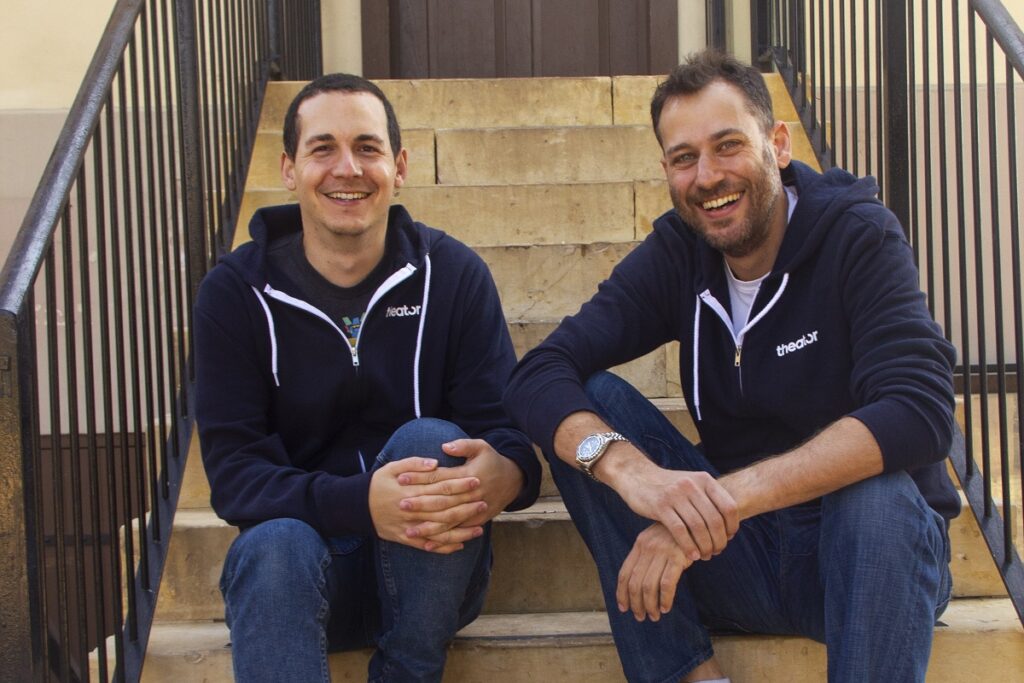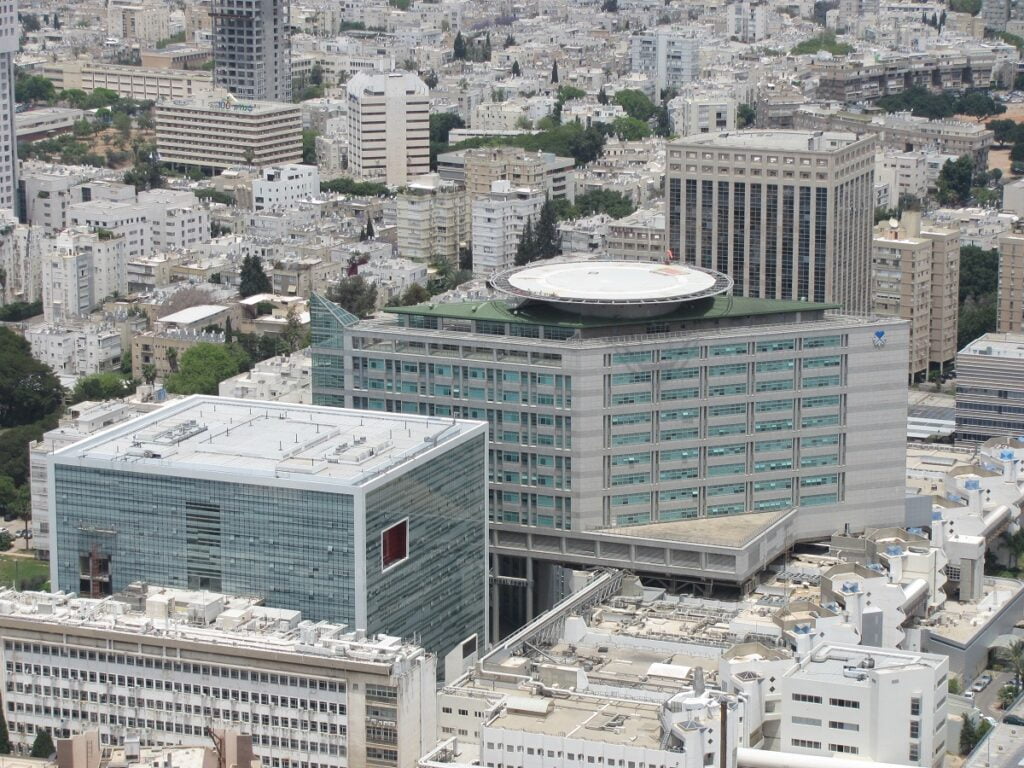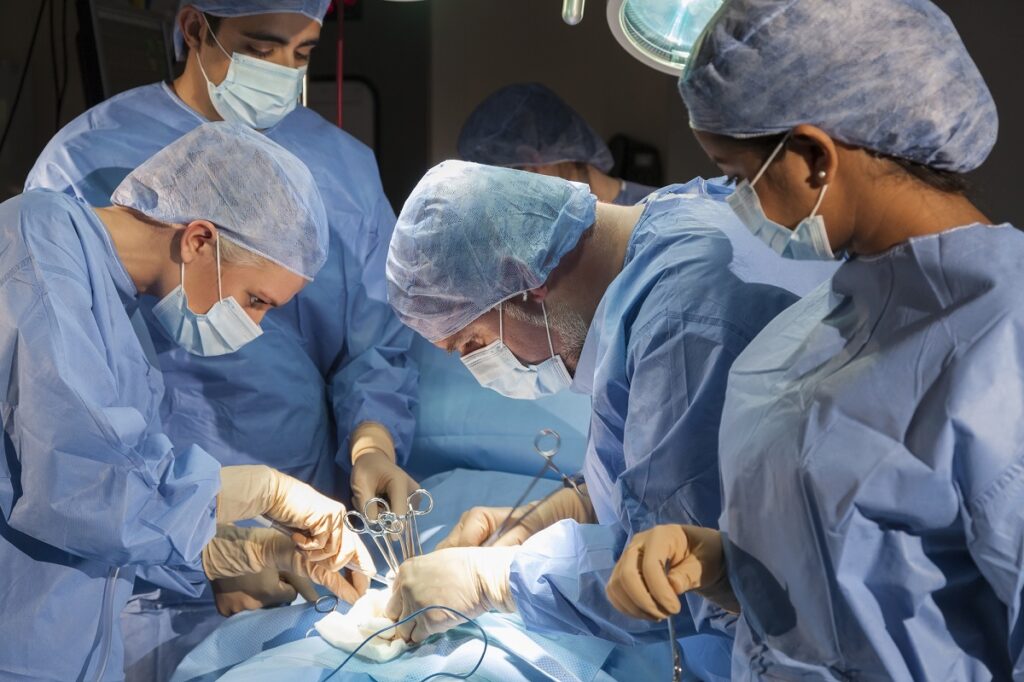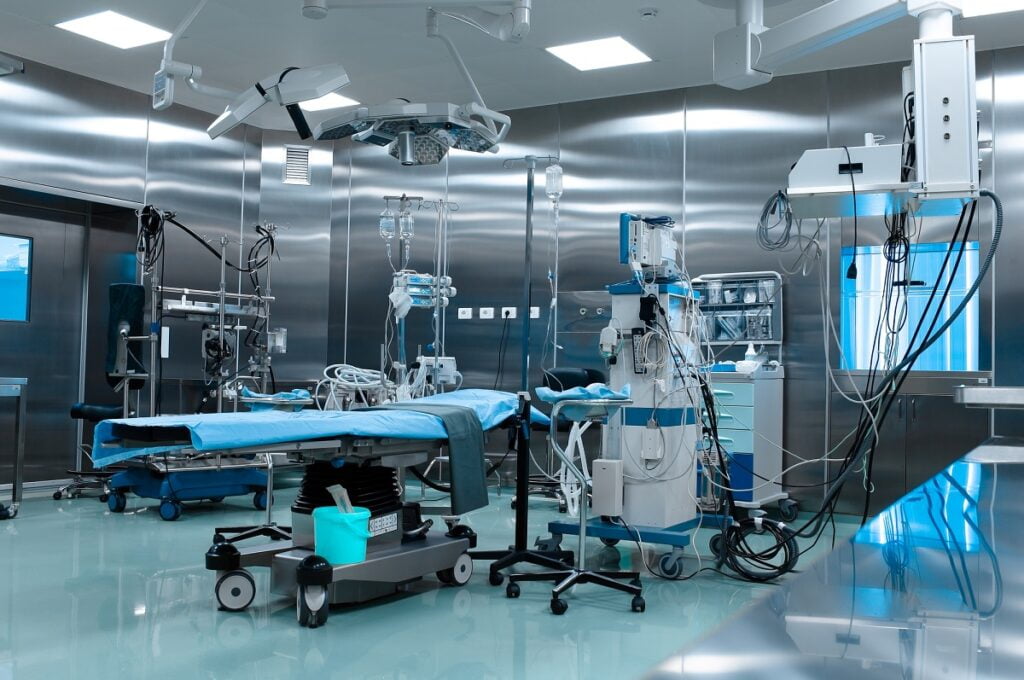Tel Aviv Sourasky Center (also knows as Ichilov Hospital), the largest acute care facility in Israel, announced this month that it will implement a surgical intelligence platform that leverages advanced artificial intelligence and computer vision tech to scan real-world surgical procedures in order to provide insights on best surgical practices and reduce medical errors, enabling surgeons to improve their performance and training.
The platform, developed by Theator, a US-Israeli startup co-founded by Dr. Tamir Wolf and Dotan Asselmann, provides video analytics that enables surgeons to review and assess — for the first time — a recently completed hours-long procedure in just minutes. The platform, which is backed by a core team and an advisory board that includes top surgeons, extracts and annotates every key moment from a procedure to allow surgeons to review their work from every angle — from pre-op preparation to post-op analysis and debrief.

“Hospitals and medical schools worldwide are realizing the importance of adapting a new surgical training regimen, and Ichilov is pioneering this revolution,” Dr. Tamir Wolf, the company’s current CEO, said in a statement announcing the partnership between Theator and the Tel Aviv hospital.
This marks the first time an Israeli hospital will implement a surgical intelligence platform in its operating room.
“We’re really excited about this collaboration with Ichilov. From the moment we first introduced Theator to the hospital CEO, Dr. Ronni Gamzu, our interaction with their surgical leadership and the innovative team at TLVMC’s I-Medata AI Center has been phenomenal,” Dr. Wolf tells NoCamels. “Their top priority is improving the quality of care for patients and providing their constituency a superior service.”
(Dr. Gamzu is currently Israel’s national coronavirus strategy coordinator.)
The integration of Theator’s surgical intelligence platform in Ichilov’s operating rooms will not only enable the capture and analysis of every procedure performed, but it will also support the coming shift from a time-based educational model to a competency-based model for surgical residents,” Dr. Wolf said in the statement.

Tel Aviv Sourasky Medical Center treats 400,000 patients and hosts 1.8 million visits per year. The academic medical center is considered one of the most progressive full-service healthcare treatment and research institutions in Israel, serving a population of one million people, including visitors and residents from the greater Tel Aviv area.
“As part of our commitment to harness innovative technology, we’re honored to be the first hospital in Israel to implement Theator’s Surgical Intelligence platform,” said Dr. Guy Lahat, Chief of Surgery of Tel Aviv Sourasky Medical Center. “Integrating the latest proven technologies is central to our commitment to providing medical excellence and patient-centered care. Theator’s platform will not only enable us to capture and analyze surgical procedures for the first time, but it will also allow us to objectively review and continuously improve our surgical performance, significantly improving patient care.”
Running on Amazon Web Services (AWS), Theator’s technology will equip the surgeons and surgical residents of Tel Aviv Sourasky Medical Center’s general surgery departments with the tools needed to continually sharpen their craft, which raises standards and performance and makes routine video capture and analysis the new standard of care in surgery.

The collaboration comes a year after the Israel Ministry of Health’s declaration of intent (Hebrew) to start capturing every procedure performed in the operating room.
“The Theator project is an example of our ongoing efforts to promote innovative solutions that drive medical excellence and enhance patient care,” continued Dr. Ahuva Weiss-Meilik, head of I-Medata AI Center at Tel Aviv Sourasky Medical Center.
While Ichilov is the first Israeli hospital to implement the platform in its operating rooms, it is not the first location in the world. According to Theator, the platform is also active in hospitals, medical schools, and research centers in North America, including at McGill University, a public research university in Montreal.
“There are so few opportunities to access the surgeries themselves
to learn and improve. Theator hands us that opportunity – to better prepare, to know what to expect,” said Dr. Liane Feldman, chair, Department of Surgery, Faculty of Medicine, McGill University and Surgeon-in-Chief, McGill University Health Centre, according to a Theator document.
Enhanced capabilities in surgery
Dr. Wolf earned his MD and PhD and served as a physician in Shayetet 13, the naval commando unit equivalent to the US Navy SEALs. But it was a few personal medical experiences in 2015 that got him to think about the “widespread disparity and variability” plaguing the surgical field costing lives and hefty readmission costs, he tells NoCamels.
Sign up for our free weekly newsletter
SubscribeHis wife, and his boss at the time both suffered from appendicitis but both received wildly different levels of care. This got Wolf thinking about the state of today’s hospitals and what surgical best practices look like, and “it was essentially the tipping point.”

Dr. Wolf partnered with Dotan Asselmann, a computer vision expert hailing from the IDF’s 81 intelligence technology unit, and together, they co-founded Theator, bringing on a team of developers, computer vision engineers, med students, and surgeons over the course of two years.
With headquarters in California and an R&D center in Tel Aviv, Theator is helping surgeons enhance capabilities and reduce medical errors by leveraging AI, machine learning, and computer vision to identify, optimize and scale best practices. While most companies at the intersection of healthcare and AI are working on static images such as x-rays and CTs for diagnostics, Theator is working to leverage video, an aspect that the company says is a critical missing piece in the sector.
“Most surgeons don’t have the time to review the entire length of their past operations,” Dr. Wolf tells NoCamels. “Theator’s AI platform transforms unstructured surgical video data into concise highlight reels for surgeons. This creates an easy and reliable system for surgeons to review their most critical surgical moments in the form of surgical steps, events, and milestones that must be achieved so the procedure is successful.”
SEE ALSO: 5 Israeli Companies Putting Surgery-Assisting Robots In The OR
The key, he says, is knowing what moments are important and having machine-learning and computer-vision automate the process. This allows maximum insights for the surgeon in just a few minutes.
On a mission to build the world’s largest surgical intelligence registry, which includes 30,000 hours of uploaded video footage, the company “has solved one of the major roadblocks to surgical video data sharing in the medical industry,” Dr. Wolf says.
Last year, the AI surgery tech company raised a $3 million seed funding round led by StageOne, iAngels, and KdTVC.

“We are strong believers that computer vision and machine learning will change surgery forever,” Yoav Samet, managing Partner of StageOne and incoming board member said at the time Theator announced the round, “Identifying best practices to make surgeons better is just the beginning. Eventually, AI-driven insights will enable autonomous robotic platforms. Theator is creating the roadmap that will ultimately aid such platforms navigate complex surgical procedures, and StageOne is proud to support this vision.”
In April 2019, Theator also announced the launch of its first product, a platform called Minutes, at the annual meeting of the Society of American Gastrointestinal and Endoscopic Surgeons (SAGES) in Baltimore, Maryland. Minutes is a highlight reel and analytics tool providing intelligently edited versions of surgical procedures. These are presented to surgeons in order to help prepare and debrief, quickly and efficiently, using AI-powered algorithmic insights.
Improving surgical performance during COVID-19
When COVID-19 hit, many hospitals worldwide made the difficult decision to halt elective surgeries, Dr. Wolf tells NoCamels. This has subsequently caused a severe backlog, with each week of disruption resulting in 2.4 million cancellations of surgeries globally.
As hospitals begin to resume surgeries, surgeons will be put under immense pressure to perform as many procedures as possible to offset the backlog – surgeons in training (i.e., residents, fellows) that constitute a major part of the surgical workforce are already experiencing the adverse effects.
“Theator’s intuitive and easy-to-use visual platform helps surgeons to continuously hone their craft – regardless of the amount of facetime they have with their mentors – by allowing them to review hours’ worth of surgical video in mere minutes,” Dr. Wolf explains.
Related posts

Israeli Medical Technologies That Could Change The World

Harnessing Our Own Bodies For Side Effect-Free Weight Loss

Missing Protein Could Unlock Treatment For Aggressive Lung Cancer




Facebook comments